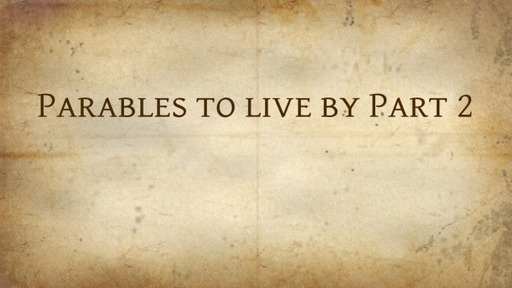Parables to live by Part 2

Introduction
God’s Truth will be made known
He is the Light of the World
The truth to be taught is that all other lights which shine upon truth—natural revelation, reason, intuition, experience—are dim reflections from the brilliance of the Son of God.
He is the light of the Revelation
He is the light of Judgement
As in the Parable of the Sower, those who receive the seed under conditions that bring it to full growth reap the benefits of a multiple harvest, but those who reject the seed or lack the qualities to bring it to maturity lose all the value of the truth.
Our Growth is a wonder to watch
Knowledge
Control
Speed
Our egos also want to control the speed of growth for the kingdom of God. Impatience takes over as we try to shortcircuit the process by expecting an instant harvest. Perhaps we are victims of a culture where everything is fast foods and instant relief. Jesus slows us down when He describes a process that takes time and cannot be either speeded up or shortcircuited: “first the blade, then the head, after that the full grain in the head” (v. 28)
God’s Results are Multiplied
The main point of the parable is that the kingdom of God (v. 30) is like what happens to the mustard seed. It has insignificant and weak beginnings, but a day will come when it will be great and powerful. It is doubtful whether the detail in the parable about the birds taking shelter in the branches of the tree has any significance, though some interpreters see in it a mention of the inclusion of the Gentiles in the kingdom. Nineham (p. 144) makes a general practical application of the truth the parable teaches: “The example of the mustard seed should prevent us from judging the significance of results by the size of the beginnings.”
On the success side of the gospel, we are equally uncomfortable with the idea that the purpose of the kingdom is to grow in service rather than power.
“The example of the mustard seed should prevent us from judging the significance of results by the size of the beginnings.”
